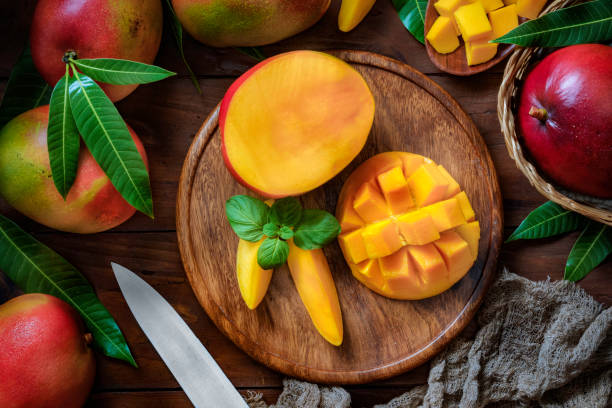In a recent study, mangoes more effectively improved prediabetes risk factors in a new study than low-sugar granola bars.
The key to mangoes’ better results likely lies in their being a whole food with natural fiber, vitamins, and nutrients.
However, experts agree that the best way to avoid type 2 diabetes is to eat a balanced, healthy diet and be physically active, rather than to depend on a single ‘superfood’ to prevent the condition.
High-sugar tropical fruit, mangoes, may be more likely to help prevent type 2 diabetes than a low-sugar snack.
The authors of the study, which appears in the journal Foods, suggest that the correlation between a preference for mango and a lower risk of diabetes may have to do with mangoes being more than simply a sweet treat, since they are a natural whole food that contains fiber, vitamins, and nutrients.
Low-sugar snacks designed to be convenient and tasty, however, may not be as nutritionally rich, may contain additives, and may thus be less likely to be healthy.
For the study, funded by the National Mango Board, two dozen participants age 50 to 70 years in age were divided into two groups. None had received a diabetes diagnosis at baseline. The study was conducted at Florida State University.
Individuals in one group received a fresh mango each day containing 32 grams (g) of sugar, while members of the other group were instead provided with a calorically similar low-sugar granola bar containing 11 g of sugar.
During the 24–week trial, researchers tracked participants’ blood glucose (sugar) levels, insulin sensitivity, and measured changes in body fat. Higher blood glucose, reduced insulin sensitivity, and increases in body fat are risk factors for type 2 diabetes.







